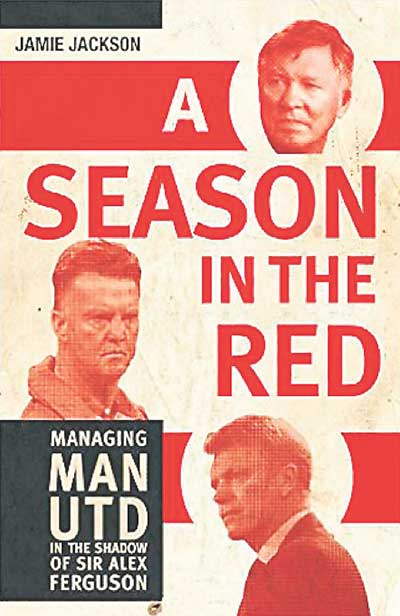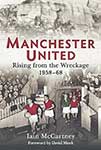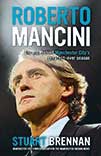 Managing Man Utd in the shadow of Sir Alex Ferguson
Managing Man Utd in the shadow of Sir Alex Ferguson
by Jamie Jackson
Aurum Press, £18.99
Reviewed by Joyce Woolridge
From WSC 345 November 2015
As Louis van Gaal celebrated his 50th game in charge of Manchester United with yet another defeat by Swansea, and the annual farce that marks United’s summer transfer window dealings escalated with the “failed” David de Gea sale, A Season In The Red may have been better written at the end (or however far the Dutchman makes it) rather than the beginning of this season. Although the book surveys both David Moyes’ and Van Gaal’s attempts to manage the “impossible job… in the shadow of Sir Alex Ferguson”, the lion’s share of the pages goes to the present incumbent and as his stock, and United’s fortunes, continue to yo-yo wildly, the tale remains half told.
The most interesting and illuminating, but all too brief, chapter deals with neither of Ferguson’s two main successors, but is about Ed Woodward, executive vice-chairman. He is the man perceived to be responsible both for uncovering vast new sources of income through worldwide regional sponsorship deals and United’s continual embarrassment in the transfer market. Jamie Jackson, the Manchester football correspondent for the Guardian and the Observer, describes Woodward’s very existence as “a cause for curiosity and celebration in the joyless, lacking-piss-and-vinegar world of elite football” and characterises him deftly as someone who appears determined to enjoy every minute, bustling with energy, unusually approachable in “a trapeze-wire act that he manages to portray like a Sunday morning stroll for coffee”.
However, both the accounts of Moyes and Van Gaal fail to spark. This is partly because of what the book is – a series of observations gathered by Jackson while attending press conferences, reporting on matches, accompanying last year’s pre-season tour in the US when Van Gaal took over the reins and in the few “intimate meet-and-greets” with the press which United’s managers deign to allow. What it doesn’t, and indeed in all fairness can’t, draw upon are personal interviews with the protagonists. So Jackson fills the gaps by imagining what it is like to be David Moyes in his office, waiting to be given the coup de grâce, what it is like to be Moyes on his first day and so on.
There are revealing sections such as when Moyes relaxes talking to the Manchester press over dinner, letting his guard slip, and a perceptive analysis of Ferguson’s replacement’s penchant for choosing the wrong words so often, hoping for, rather than expecting results. Van Gaal’s entertaining performances for the press are also well observed. But Jackson is prone to rambling and to say the same thing, wearingly, in several different ways. Moyes is “the number one around here, numero uno, the gaffer, Le Grand Fromage”. Plus the Splitting. Sentences up. Into sections and inserting interludes which are possibly meant as poetry: “Sir Alex Ferguson, David Moyes, Shadows falling, Shadows falling.”
Stylistic tics aside this is a serviceable, if premature, rendition of the story so far, though without much detailed analysis (particularly needed in the case of Moyes, accused by some of tactical ineptitude) of what happened on, rather than off the field. Ryan Giggs’s brief tenure, potentially so revealing, merits far more than the single sentence devoted to it.

 1958-68
1958-68 The man behind Manchester City’s
greatest ever season
The man behind Manchester City’s
greatest ever season